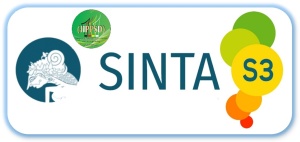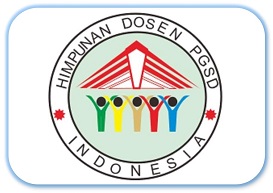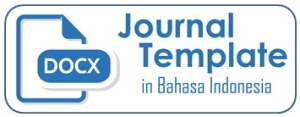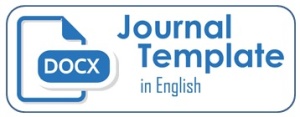HOTS-Based Digital Worksheets as Interactive Assessment in Sciences Learning for Elementary School Teacher Education
 ), Soma Setiaji(2), Angga Ricardo(3),
), Soma Setiaji(2), Angga Ricardo(3), (1) STKIP Muhammadiyah, Blora City
(2) STKIP Muhammadiyah, Blora City
(3) STKIP Muhammadiyah, Blora City
 Corresponding Author
Corresponding Author
DOI : https://doi.org/10.24036/jippsd.v8i2.128649
Full Text:
 Language : en
Language : en
Abstract
Keywords
References
Aditya, B. R., Andrisyah, Ismiatun, A. N., Atika, A. R., & Permadi, A. (2021). Digital disruption in early childhood education: A qualitative research from teachers’ perspective. Procedia Computer Science, 197(2021), 521–528. https://doi.org/10.1016/j.procs.2021.12.169
Ananda, R., & Fadhilaturrahmi, F. (2018). Analisis Kemampuan Guru Sekolah Dasar Dalam Implementasi Pembelajaran Tematik Di Sd. Jurnal Basicedu, 2(2), 11–21. https://doi.org/10.31004/basicedu.v2i2.42
Budiastuti, E., Sugiyem, & Puad, F. N. A. (2023). Developing self-assessment instruments to measure students’ performance characters in making dresses using a high-order thinking skills approach. Cakrawala Pendidikan, 42(1), 27–37. https://doi.org/10.21831/cp.v42i1.50172
Diana, F. S., & Hisar, M. M. (2021). The Effect of Problem-Based Learning Model during Pandemic On the Thematic Learning Outcomes of Students in Elementary School. Jurnal Basicedu, 5(4), 2156–2163.
Fuadi, H., Gunawan, G., & Susilawati, S. (2022). Feasibility of PBL (Problem Based Learning)-based Sound Wave Electronic Student Worksheet for High School Students Using the Liveworksheet Application. Jurnal Penelitian Pendidikan IPA, 8(4), 2255–2265. https://doi.org/10.29303/jppipa.v8i4.1982
Handini, O., Gunarhadi, Hidayatullah, M. F., & Akhyar, M. (2022). Analysis of Collaborative Learning Models in Online Thematic Learning During the Pandemic Covid-19. Proceedings of the Universitas Lampung International Conference on Social Sciences (ULICoSS 2021), 628(20), 677–683. https://doi.org/10.2991/assehr.k.220102.093
Hayati, M. N., Fatkhurrohman, M. A., & Learning, B. (2020). Development of Predict-Observe-Explain Oriented e-Module as a Learning Media to Improve Students’ Problem Solving Skills. E-Journal Ups, 4(januari 2020), 1–11.
Hediansah, D., & Surjono, H. D. (2019). Building Motivation and Improving Learning Outcomes with Android-based physics books: Education 4.0. Anatolian Journal of Education, 4(2), 1–10. https://doi.org/10.29333/aje.2019.421a
Hernández-Campos, E., Jaimez-González, C. R., & García-Mendoza, B. (2020). Interactive mobile applications to support the teaching of reading and writing of Spanish for children in Elementary education. International Journal of Interactive Mobile Technologies, 14(14), 64–79. https://doi.org/10.3991/IJIM.V14I14.14925
Izhar, G., Wardani, K., & Nugraha, N. K. (2022). The Development Enviromental Literacy Media Learning for Elementary School Student. Journal of Innovation in Educational and Cultural Research, 3(3), 397–404. https://doi.org/10.46843/jiecr.v3i3.116
Khotami, M. H., Marlina, L., & Wiyono, K. (2023). The Needs Analysis of the Electronic Student Worksheets (e-LKPD) Based on Discovery Learning for the Topic of Traveling Waves in High School. Jurnal Pendidikan Fisika Dan Teknologi, 9(1), 163–170. https://doi.org/10.29303/jpft.v9i1.5223
Laksono, A., Rusilowati, A., & Widiyatmoko, A. (2023). Development and Validation of STEM-Based Science Digital Worksheet on Object Motion Material for Junior High School Students. Jurnal Penelitian Pendidikan IPA, 9(5), 2664–2669. https://doi.org/10.29303/jppipa.v9i5.3720
Muhamad Dah, N., Mat Noor, M. S. A., Kamarudin, M. Z., & Syed Abdul Azziz, S. S. (2024). The impacts of open inquiry on students’ learning in science: A systematic literature review. Educational Research Review, 43(February). https://doi.org/10.1016/j.edurev.2024.100601
Nasrullah, Alimuddin, & Talib, A. (2021). Using HTML-Based Worksheet to Support Students in Active Mathematics Learning. Journal of Physics: Conference Series, 1899(1). https://doi.org/10.1088/1742-6596/1899/1/012165
Noveria, E., Arief, E., Wulandari, E., & Ramadani, N. T. (2023). Need Analysis of Interactive E-Worksheet as a Source of Digital Learning based on Local Wisdom in Learning Folklore Texts. 15(4), 2605–2613. https://doi.org/10.35445/alishlah.v15i1.
Preminger, L., Hayes, K. N., Bae, C. L., & O’Connor, D. (2024). Why do teachers vary in their instructional change during science PD? The role of noticing students in an iterative change process. Science Education, 108(3), 701–733. https://doi.org/10.1002/sce.21853
Rokhim, D. A., Widarti, H. R., & Fajaroh, F. (2020). Pengembangan Bahan Belajar Flipbook Pada Materi Redoks dan Elektrokimia Berbasis Pendekatan STEM-PjBL Berbatuan Video Pembelajaran. Kwangsan: Jurnal Teknologi Pendidikan, 8(2), 234. https://doi.org/10.31800/jtp.kw.v8n2.p234--250
Salehudin, M., Nasir, M., Hamzah, S. H., Toba, R., Hayati, N., & Safiah, I. (2021). The users’ experiences in processing visual media for creative and online learning using Instagram. European Journal of Educational Research, 10(4), 1669–1682. https://doi.org/10.12973/EU-JER.10.4.1669
Sari, N. M., Pamungkas, A. S., & Alamsyah, T. P. (2020). Pengembangan Lembar Kerja Peserta Didik Matematika Berorientasi Higher Order Thinking Skills Di Sekolah Dasar. SJME (Supremum Journal of Mathematics Education), 4(2), 181–194. https://doi.org/10.35706/sjme.v4i2.3406
Soncin, M., & Cannistrà, M. (2022). Data analytics in education: are schools on the long and winding road? Qualitative Research in Accounting and Management, 19(3), 286–304. https://doi.org/10.1108/QRAM-04-2021-0058
Sugiyono, S. (2010). Metode penelitian kuantitatif dan kualitatif dan R&D.
Susanti, D., Retnawati, H., Arliani, E., & Irfan, L. (2023). Peluang dan tantangan pengembangan asesmen high order thinking skills dalam pembelajaran matematika di indonesia Pendahuluan Pendidikan adalah rekontruksi dan reorganisasi pengalaman yang menambah arti serta. 02(02), 229–242.
Sutopo, H. B. (2002). Metodologi penelitian kualitatif.
Trinh, Q. L., Nguyen, T. D. L., & Le, T. T. (2019). Using Explicit Instruction of the International Phonetic Alphabet System in English as a Foreign Language Adult Classes. European Journal of Educational Research, 9(2), 445–455. https://doi.org/10.12973/eu-jer.11.2.749
Yusra, H., Sinaga, A., & Safitri, S. D. (2023). Asesmen Pembelajaran Menulis Teks Narasi Kelas Vii Mts Muhammadiyah Kota Jambi. Judika (Jurnal Pendidikan Unsika), 11(1), 69–78. https://doi.org/10.35706/judika.v11i1.8717
Zainil, M., Kenedi, A. K., Rahmatina, Indrawati, T., & Handrianto, C. (2023). The influence of a STEM-based digital classroom learning model and high-order thinking skills on the 21st-century skills of elementary school students in Indonesia. Journal of Education and E-Learning Research, 10(1), 29–35. https://doi.org/10.20448/jeelr.v10i1.4336
 Article Metrics
Article Metrics
 Abstract Views : 72 times
Abstract Views : 72 times
 PDF Downloaded : 15 times
PDF Downloaded : 15 times
Refbacks
- There are currently no refbacks.

This work is licensed under a Creative Commons Attribution 4.0 International License.







